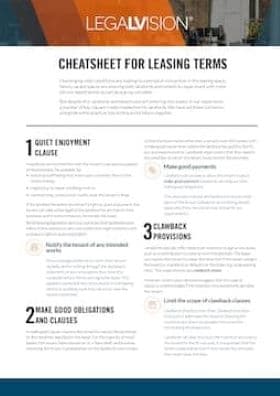Over the last two years, during the turbulent times of COVID-19, small businesses were taking the brunt of the pandemic. Many small businesses were forced to close or reduce their operating hours due to the lack of sales and customers, resulting in the inability to meet rent and lease obligations. Fortunately, the Retail Leases Act 1994 (NSW) (‘the Act’) protected small businesses and gave them access to low-cost mediation with their landlords.
However, the Act is limited in its definition of what it considers a retail shop. Businesses that weren’t listed in Schedule 1 of the Act did not have the protection and rights under the Act.
Retail Leases Regulation 2022
With COVID-19 as the catalyst, the NSW Small Business Commissioner removed Schedule 1 of the Act and replaced it with the Retail Leases Regulation 2022 (‘Regulation’). Accordingly, for the purposes of the Act, retail shops now include:
- gymnasiums and fitness centres, including yoga, barre, pilates and dance studios; and
- small bars with a maximum patron capacity of 120.
As a retail shop, it does not matter whether the premises are:
- in a shopping centre;
- on a retail shopping strip; or
- on a stand-alone premises.
From 1 January 2023, the Act will apply to existing leases of gymnasiums, fitness centres and small bars. Accordingly, such businesses now have access to low-cost dispute resolution and mediation processes for retail tenancy disputes.
Any new leases of gymnasiums, fitness centres and small bars entered on or after 1 January 2023 will be subject to all provisions of the Act.
Access to NSW Civil and Administrative Tribunal (NCAT)
Suppose the parties cannot reach an agreement during mediation. In this case, parties to a lease entered on or after 1 January 2023. As such, they can now apply to NCAT to determine their matter. However, existing leases will not have access to NCAT. Instead, they must apply to the appropriate civil court.
Continue reading this article below the formDeletions and Amendments to the Act
With the regulation coming into effect, several sections in the original Act are now deleted. For example, where beer, wine and spirit shops fall under the Act, the words “except where goods are for consumption on the premises” are now removed. With the removal, the regulation allows locations such as wineries and cellars to fall under the Act as retail shops.
In addition, the regulation removes the words “and other businesses as from time to time may be prescribed by the regulations”. This imposes a stricter exemption of businesses not listed in the regulation from the provisions of the Act and does not allow any discretion or flexibility.
Limitation on Gymnasiums, Fitness Centres and Small Bars
The Act provides exclusions to businesses that are (not exhaustive):
- leases of premises with a lettable area of 1,000 metres or more;
- leases of premises uses for any one or more of the purposes listed in Schedule 1A (excluded uses); and
- leases of terms greater than 25 years.

This cheat sheet explains the key clauses you need to be aware of as a landlord in a lease agreement.
Key Takeaways
Changes to the Retail Leases Act 1994 (NSW) now mean that gymnasiums, fitness centres, and small bars have access to low-cost dispute resolutions. Please take note of the date the retail lease was entered into. This will determine what dispute resolution is accessible.
If you need help understanding the changes to the law, our experienced leasing lawyers can assist as part of our LegalVision membership. For a low monthly fee, you will have unlimited access to lawyers to answer your questions and draft and review your documents. Call us today on 1300 544 755 or visit our membership page.
We appreciate your feedback – your submission has been successfully received.












